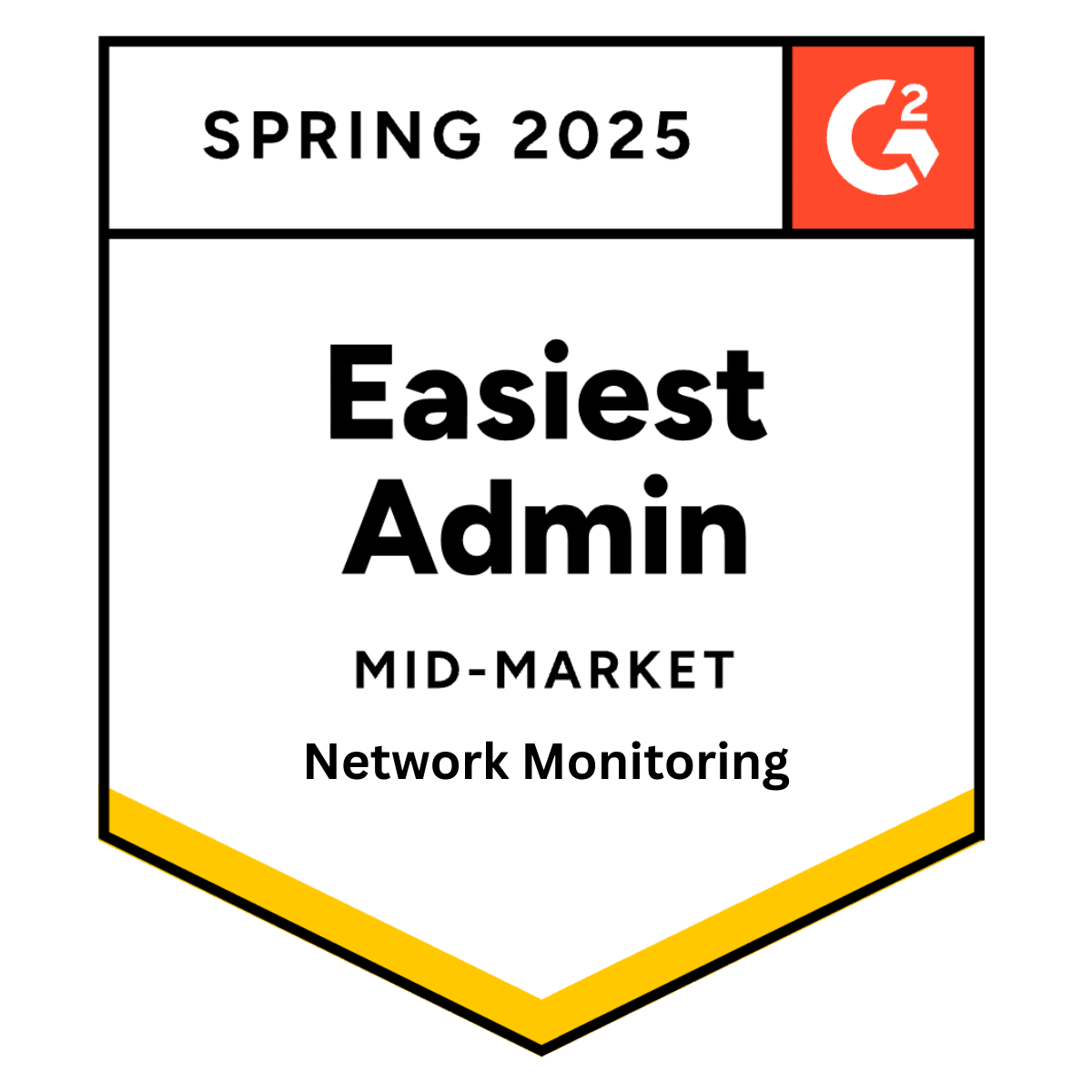
Becoming a Sysadmin Hero: Top 10 Skills You Should Have
Thursday 15 June, 2023

Every professional wants to advance in their careers and IT pros are no different.
You've probably wondered how to do and be more as an IT technician. How do you distinguish yourself from Joe, who sits next to you and is also a jack of all IT trades? How do you go from being a common IT guy to being an IT hero?
Let's look at the top 10 sysadmin essential skills you could learn to boost your career and enhance your salary.
Sysadmin essential skills
There's no substitute for hard work and continuous learning; that's a given. However, you can't become a master sysadmin by simply working hard or learning a lot.
You also need to be more strategic in your approach to choosing the sysadmin essential skills you want to master on your journey to becoming an IT hero. Here are the top 10 sysadmin essential skills you must cultivate.
1. Network security
The number one in-demand skill at the moment is being able to manage the growing number of cyber-risks. It's a sure way to supercharge your career. To do so, however, sysadmins should have an extensive and thorough understanding of network security concepts like intrusion detection systems (IDS), intrusion prevention systems (IPS), threat analysis and vulnerability management. They should be able to implement the principles and best practices that underlie a secure network design, like network segmentation, sandboxing and access control. They also need to stay up to date with the latest security threats and best practices.
To improve your understanding and knowledge of network security, you could become a Certified Information Systems Security Professional (CISSP), which is one of the world's best cybersecurity certifications. Preparing for this certification and getting certified will give you all the skills you need to plan, implement and manage an effective cybersecurity program. The CISSP certification will validate your skills to prospective employers and also gives you access to a wide range of educational resources and networking opportunities to help you progress in your career.
2. Project management
Most sysadmins have some level of technical expertise but not all possess the business acumen required to set priorities, plan effectively, and deliver projects and results on time and within budget.
Project management is a critical skill if you want to be in charge of major projects because it involves managing and scheduling additional resources. Developing this skill, typically found in senior technicians, can help accelerate your growth.
Project management is much more than just operating your PSA solution; there are different approaches to it. The PMP approach to project management focuses on building people, process and business skills. The Scrum Master approach is slightly different. It teaches you how to help your team, product owner or stakeholders, and organization achieve their objectives. The PRINCE2 approach views project management as a process made of three parts — a beginning, middle and end.
All these approaches are tried and tested and recognized by organizations and recruiters alike. By getting certified and validating your skills in a recognized mode of project management, you can gain an advantage over your peers as a sysadmin.
3. IT specialization
Sysadmins have garnered a reputation for being a “jack of all trades” because they have so many responsibilities to take care of. However, it pays to become a master in at least one of the essential sysadmin skills.
Imagine being the go-to security or compliance guy in the office. Someone spots a security issue on their device, and they immediately rush to you to figure out how to best resolve it. Or, they have connectivity issues and contact you to get back online again.
Being the go-to guy in any area of expertise not only builds your reputation but also makes you that much harder to replace, giving you the upper hand during appraisal season. While it's great being a jack of all trades in IT, being a master of at least one of the sysadmin essential skills, like network engineering or database administration, is always better.
4. Compliance management
Sysadmins are part of a business and IT environment where security is of utmost importance and concern. Hence, there are regulations to ensure organizations adhere to the best trade and security practices that are required to operate in specific geographies or sectors.
Compliance standards dictate how organizations should handle, store and manage data, and how they should best protect their systems and users. And it's the job of the IT team to prove compliance if and when audits and breaches occur.
The bulk of compliance is a matter of record keeping and every organization needs people who can ensure they are compliant and can deliver proof when required. That's why compliance management is a skill that you can develop to advance your career as a sysadmin.
There are solutions like Compliance Manager GRC that help you automate the bulk of compliance and documentation processes. They give you all the information and reminders you need to maintain compliance, including identifying which regulations apply to your organization and what they require.
All you need is a working knowledge of compliance regulations like GDPR and some idea of how compliance solutions work. Compliance Manager GRC, incidentally, has many free resources that can help you become more proficient at using their solution and managing compliance. Being proficient in compliance will give you visibility within your organization and further enhance your reputation.
5. Business continuity planning
With cyberattacks on the rise, ensuring business continuity is easier said than done these days. It requires you to adopt a strategic approach to assessing risks, defining recovery objectives, implementing backup and replication strategies, and more. In other words, it's a proactive process that enables organizations to manage potential threats, vulnerabilities and weaknesses, and you can master it. Being proactive in planning areas such as this will save a lot of headaches in the future and prove your value to the organization.
There are certification courses, like the one offered by BCI, that can help you implement a Business Continuity Management (BCM) program in your organization. This course, in particular, covers how to analyze, design, implement, validate and embed a business continuity policy and program that builds organizational resilience.
6. Data management and analytics
Data plays a critical role in today's competitive business environment since it helps drive productivity and efficiency. That's why every organization needs sysadmins that can collect, organize and maintain complex databases so they have the information they need to be able to make sound data-driven decisions.
Effective data management helps companies keep their data up to date and accurate, secure and available when needed. It's complemented by analytics, which is the process of converting raw data into actionable insights.
It's not enough to harvest vast amounts of data. Every organization needs professionals who can interpret data and use it to their advantage.
As a sysadmin, you can leverage data management skills to help your organization make smarter decisions across the board. You can also use your analytics skills to streamline IT operations, improve user and asset management, and other IT functions.
Platforms like Coursera offer plenty of courses on data management and analytics that are backed by reputed educational and business institutions. You could also build your skills in specific solutions like Microsoft's Power BI or Google Analytics.
7. IT budget planning
IT budgeting is important because it helps organizations track and control their IT expenses and allows them to strategize and uncover ways to optimize performance and save resources where possible. The process occurs annually in most organizations at the beginning of the financial year. It plays a significant role in maintaining and updating technologies that help organizations keep their IT and business operations running efficiently.
Budgeting requires you to be able to allocate resources effectively and identify opportunities for cost optimization. It requires you to strike a balance between financial constraints and technological needs to provide solid recommendations for investments in IT infrastructure. If this sounds like something you would like to explore further, there are courses that can help you develop your budgeting skills and become a better sysadmin.
Many organizations see IT departments as an expense, so learning how to budget and make sound financial decisions will help you generate goodwill. This ensures the budgets get approved, especially when a need for unbudgeted spend arises during the year after budgets have been agreed.
8. Automation and Infrastructure as Code (IaC)
The plethora of automated solutions in the market has shown how efficient automation is in increasing productivity and efficiency. However, it may not always make financial or operational sense to purchase a new solution every time there's a requirement. Gaining proficiency in infrastructure automation and Infrastructure as Code (IAC) tools like Ansible or AWS CloudFormation can make you a valuable resource at organizations looking to bridge the gap between manual and automated processes.
Look to gain skills that will enable you to automate the deployment, configuration and management of processes for various infrastructure components since these will help you increase the overall efficiency and productivity of your organization. Ansible offers plenty of resources that can help you automate repetitive tasks and free up your teams for more strategic work. There are courses like the Google IT Automation with Python Professional Certification course that can help you learn how to automate processes.
9. Leadership and communication
We've covered all the important technical and business skills that can help you on your journey to becoming a sysadmin hero. Our final recommendations are regarding soft skills, beginning with leadership and communication.
Organizations value employees with leadership skills because they mentor other team members, provide guidance, share knowledge and foster collaboration. Leaders create a supportive environment that helps others, including users, learn and grow so they avoid making the same mistakes.
Good leaders are also often good communicators. They are tactful and communicate in ways others appreciate and are least resistant to.
Sysadmins are usually underappreciated and noticed only when things go wrong. However, by being a good leader and communicator, you can gain more recognition.
Again, platforms like Coursera offer plenty of courses from reputed institutions on leadership and communication. Just pick a course and start learning.
10. Problem-solving and troubleshooting
There's no way you won't run into problems as a sysadmin, but how you respond to issues will determine how successful you will be.
To your users, you are the expert. Hence, it's important that you remain professional and not panic even if the solution is not clear. This will help keep your reputation intact even if it takes time to resolve the issue.
As a sysadmin, you need a systematic approach to troubleshooting. You need to be familiar with established troubleshooting methods, such as the 'divide and conquer' technique, which involves isolating components and testing them individually to identify the source of the problem.
These methods can help you resolve issues for your organization and make you a more valuable sysadmin.
Once again, there are online courses on troubleshooting that can help you adopt a systematic approach to solving problems.
Becoming a master sysadmin
By reading this blog, you've taken your first step toward becoming a sysadmin hero. Now, you know the skills you can cultivate to progress in your career and help your organization grow. You also know which certifications can help you validate your skills to companies. It's time then for you to take the next step and dive deeper into one or more of these skills. We wish you all the best on your journey!
Share this post
Related Posts
Join the Ranks of Satisfied Customers and Experience the Pulseway Difference Today.








